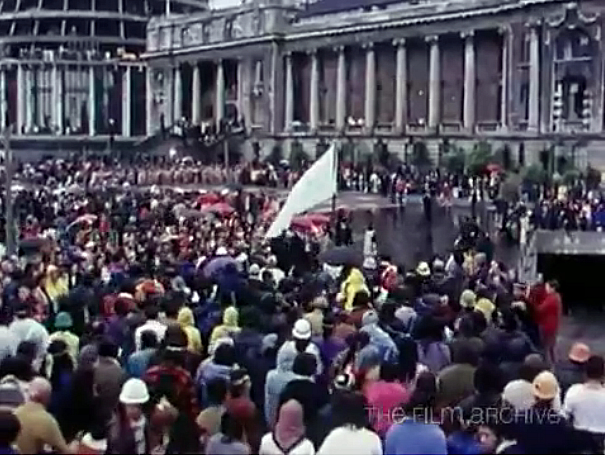In 1975, the seventy-nine-year-old Whina Cooper led a protest march the length of the North Island, from Spirits Bay to Parliament in Wellington, to present a petition protesting the alienation of Māori land. It was the first major expression of a new Māori protest movement.
The experimental documentary Te Matakite o Aotearoa (1975) was made by a Pākehā crew who travelled with the marchers. Director Geoff Steven had been a photographer, and cinematographer Leon Narbey and sound recordist Philip Dadson were both recent Elam art-school graduates. In its time, the documentary was notable for not being reporter led. Instead, the filmmakers wanted to document the march and have the participants tell their own stories. This was a challenging task as they only had about six hours of film stock to document the month-long event.
Christina Barton describes the film as ‘an act of appropriate witnessing rather than observation or interpretation’. It was the first New Zealand documentary to be screened on New Zealand’s second television channel, TV2.
Screenings 11am, 1pm, and 3pm, until 29 August.
Te Matakite o Aotearoa is presented as the first in a series of films accompanying Brett Graham's exhibition Tai Moana Tai Tangata.
Thanks to Ngā Taonga Sound and Vision, Wellington.





